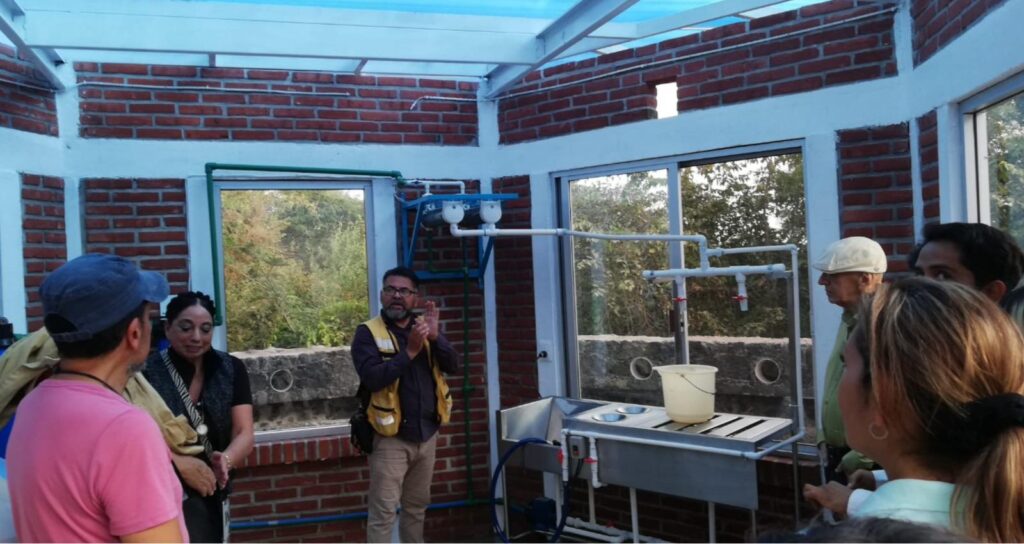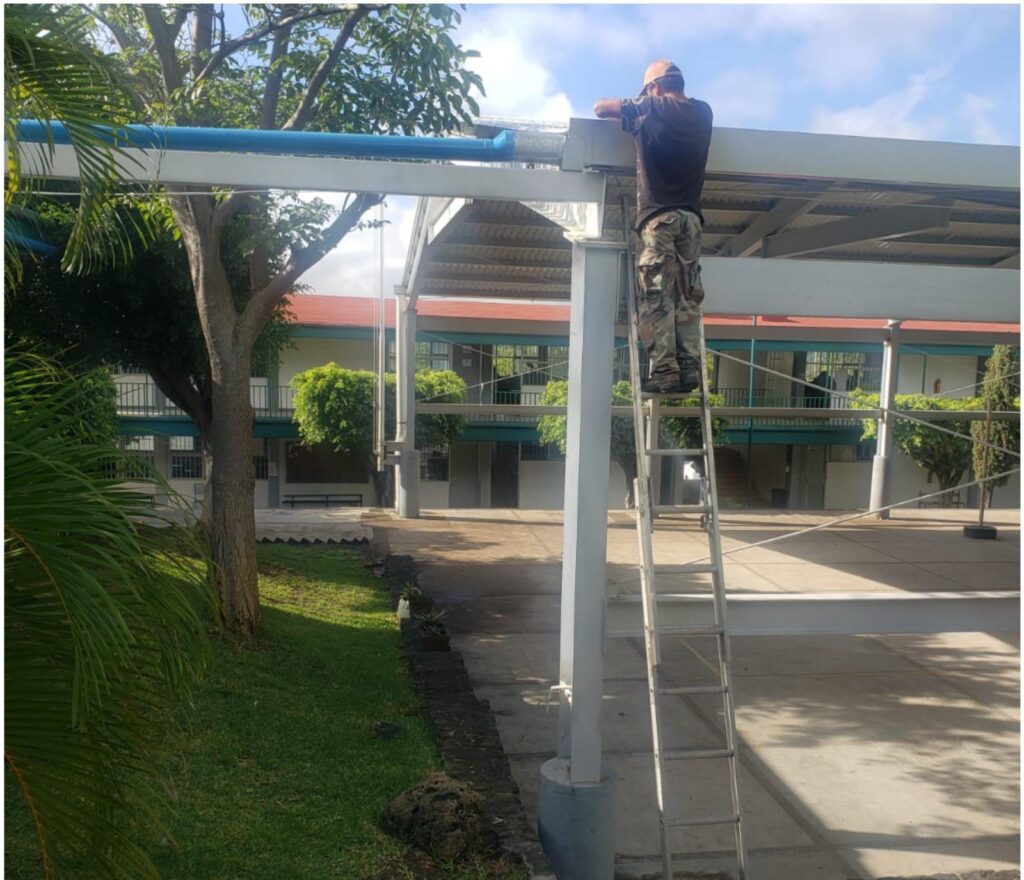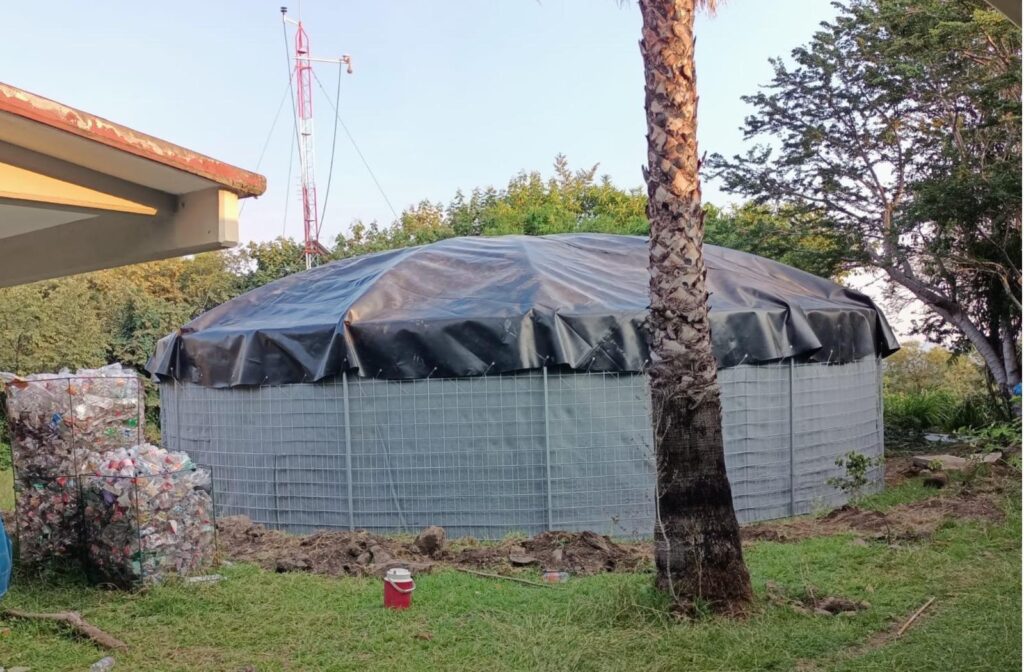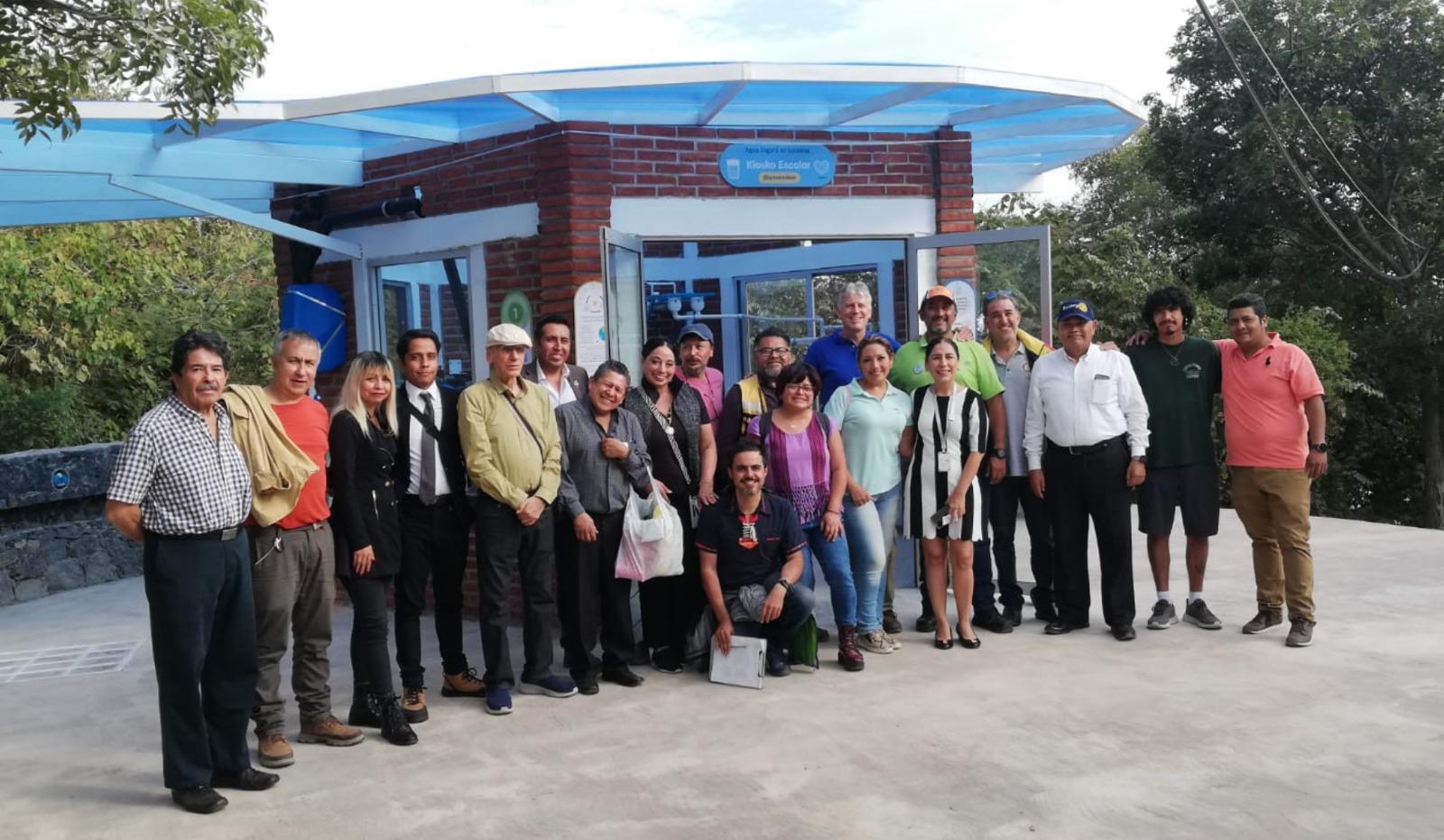by Natalia Luque Sánchez, ESRAG Correspondent for Latin America
Preventing Plastic Waste
How can we prevent 500 plastic water bottles from being bought and discharged every day and become the inspiration for a circular economy project to bring water to a community?

Water Kiosk
This question was posed by the Rotarians from the Cuernavaca Juarez Rotary Club of District 4185. The Club members found that the students and personnel from many local schools have no drinking water available at the facilities. Usually, a tanker truck comes to the schools four times a week to supply non-potable water for the running and maintenance of the facility, so the easiest way for students and workers to hydrate every day is to buy water in plastic bottles. So, an average of 400 to 500 water bottles are thrown away every day in the location.
The Club, looking at this difficult situation for the communities and using the experience from a previous project in San Juan Tlacontenco, came up with a clever solution that will not only prevent the use of so much disposable plastic but establish a permanent solution to the need for potable water.
With the use of the existing arched ceilings of the CONALEP Preparatory School’s (located near Tepoztlan and Yautepec) sports facilities, they will collect and conduct the rainwater to a 230,000 L tank. Then, the water will pass through a series of filters to be purified. The filters will be located in a round Kysco structure that will make it easy for the school community to access the potable water.
Circular Economy in Action
According to Aguas de Mexico, by 2022 around 12 million people had no access to potable water in Mexico. Droughts have worsened in the last decade and over-exploitation of aquifers has intensified by about 15%. By the same year – 2022 – the United Nations reported that about 2,2 billion people lacked access to safely managed drinking water services around the world.

Rooftop water capture
So, this project not only secures the availability of drinking water to the community but also, by creating a committee of students of different ages to receive training in the functioning and maintenance of the system, they understand the importance of water use, sanitation and protection of water sources. They will also commit to training new students and guarantee the running and maintenance in the coming years. The potable water will be available for the students who will now use reusable bottles to be refilled. Every student and worker will be able to bring and reuse milk or dairy jar containers to be refilled with safe water for a very low price and take it home.
This amazing project, as well as the previous one, are great examples of the circular economy. By using the existing building structures, the project will optimize building resources, the disposal of plastic waste will be reduced, and other types of containers will be repurposed to bring potable water home. Not only the 500 school members will benefit, but the surrounding families and the money collected for the water to take home will be used for the maintenance and replacement of the system.

Water tank for dry season
This replicable project was advised by Adrian Inda of the 25A Zone Latin-America CADRE, with the support of Arizona District 5495. It was presented at a project fair and received a Global Grant. This is a great example of how a project can impact a community, be replicable and help solve several problems. For more information, contact Rotarian Erik Friend from the Rotary Club Cuernavaca Juarez at [email protected]
Biologist Natalia Luque is a member of the RC Global Zipaquíra, D 4281 and the ESRAG Latin-American Chapter Communications Team. Photo credits: Rotary Club Cuernavaca Juarez.

